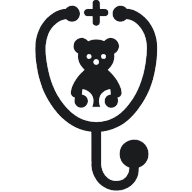How Does Patient Education Play a Role in a Child's Treatment?
Imagine a world where every child's medical journey is enhanced by knowledge and understanding. In this insightful Q&A session with pediatric professionals, it becomes clear that patient education is a powerful tool. The discussion begins with ways to empower families through patient education and concludes with tips on empowering parents to advocate effectively, covering six key insights in total. Dive into the details to discover how these approaches can transform a child's treatment experience.
- Empower Families Through Patient Education
- Encourage Family Participation in Care Decisions
- Reduce Anxiety with Clear Understanding
- Improve Cooperation with Clear Explanations
- Promote Adherence to Treatment Plans
- Empower Parents to Advocate Effectively
Empower Families Through Patient Education
Patient education is crucial in pediatric care, as it empowers families to actively participate in their child's treatment and promotes better health outcomes. Studies show that well-informed parents can significantly reduce hospitalizations and emergency room visits. For example, research has demonstrated that asthma-education programs for children have reduced hospitalizations by 82% and emergency-department visits by 81% (American Academy of Pediatrics). This highlights the positive impact of educating parents and caregivers on managing chronic conditions like asthma.
In my practice as a neonatologist and pediatrician, I've seen firsthand how explaining the rationale behind treatments, such as neonatal-intensive-care or post-hospital care for infants, reduces anxiety and builds trust. Educating parents not only helps them feel more confident in caring for their children but also improves adherence to treatment plans, leading to faster recovery and long-term health benefits.
Moreover, clear communication about conditions like developmental delays or pediatric diseases helps families make informed decisions. As children with chronic conditions grow and better understand their health, they can take on more responsibility in managing their own care, further reducing the risk of complications.
Ultimately, patient education fosters a collaborative approach between healthcare providers and families, ensuring that children receive the best possible care at every stage of their development.

Encourage Family Participation in Care Decisions
Patient education empowers families to actively participate in care decisions by providing them with the knowledge they need to make informed choices about treatment options. When families feel knowledgeable, they are more likely to ask questions and engage in discussions with healthcare providers. This collaboration can lead to more personalized care plans that are tailored to the child's specific needs.
Moreover, it builds a trusting relationship between the family and medical team. Let's encourage healthcare providers to focus on educating families to enhance treatment outcomes.
Reduce Anxiety with Clear Understanding
Understanding diagnoses and treatments reduces child and family anxiety because it removes the fear of the unknown. When parents and children know what to expect, it helps them mentally and emotionally prepare for the road ahead. This preparation can lead to a more positive experience during hospital visits and medical procedures.
Knowing the reasons behind each step of the treatment can also provide comfort and reassurance. Let's advocate for clear, understandable communication in healthcare settings.
Improve Cooperation with Clear Explanations
Clear explanations of procedures improve cooperation and reduce treatment resistance by making sure that everyone involved knows what's going on. When children and their parents understand the steps of a procedure, they are less likely to feel scared or uncertain. This leads to a smoother process where children are more likely to follow instructions.
Cooperation from the child can make the treatment quicker and more effective. It's vital to push for comprehensive patient education to achieve smoother medical procedures.
Promote Adherence to Treatment Plans
Education promotes adherence to treatment plans, leading to better health outcomes, because families understand the importance of following the prescribed regimen. When a child needs to take medication or follow specific instructions, educated parents are more equipped to ensure it happens. They comprehend the long-term benefits and are more committed to sticking to the plan.
This consistency is key to achieving the desired health improvements. Let's emphasize the importance of thorough patient education to encourage treatment adherence.
Empower Parents to Advocate Effectively
Knowledge empowers parents to advocate for their child's healthcare needs by giving them the confidence to speak up and ask for what is best. When parents are well-informed, they can have meaningful discussions with healthcare providers about treatment options and necessary adjustments. This advocacy ensures that the child's individual needs are met more accurately.
Empowered parents can also navigate the healthcare system more effectively. Let’s promote educational initiatives for parents to boost their advocacy skills.

